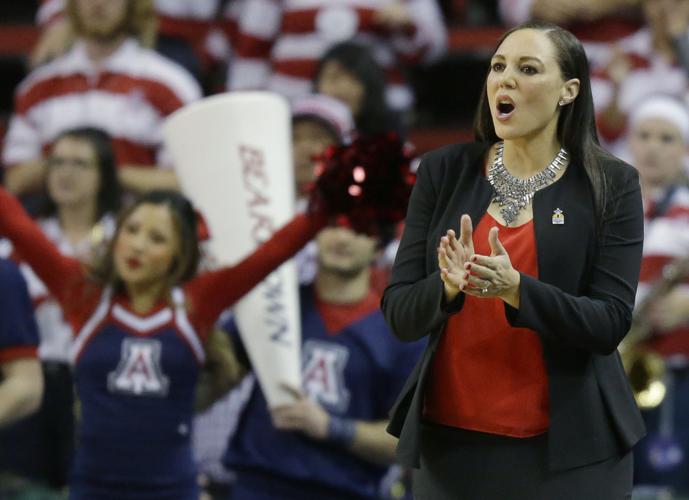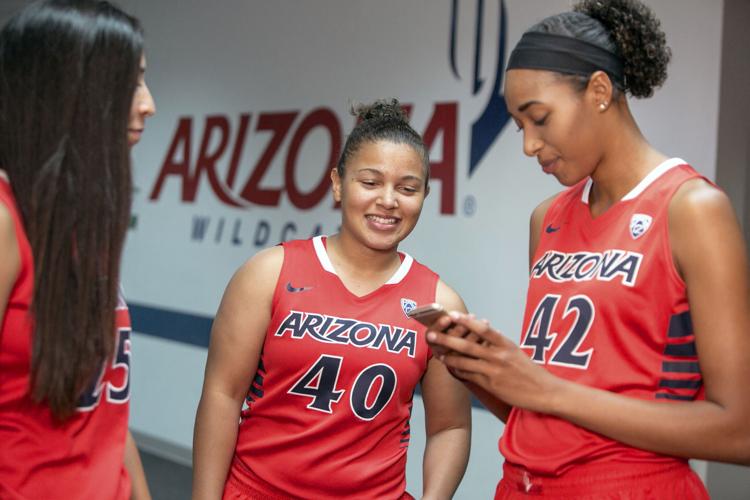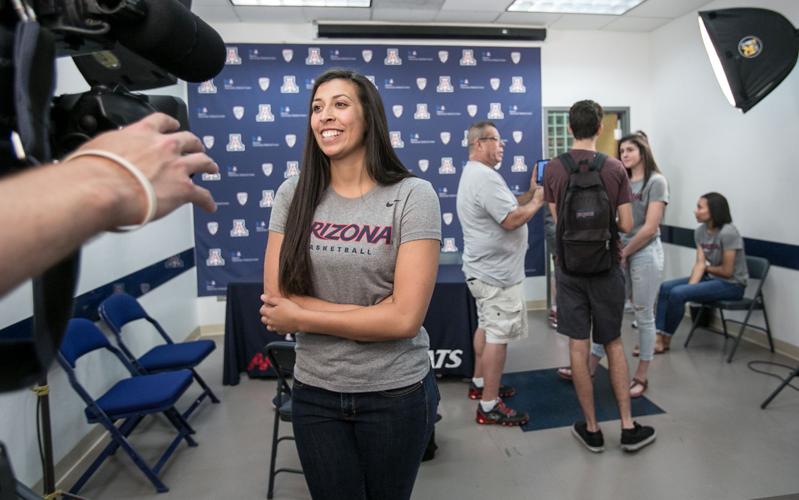Editor’s note: This article is part of the Star’s 2017-18 basketball guide, which runs in Sunday’s paper.
When Adia Barnes was hired as head coach of the Arizona women’s basketball team in the spring of 2016, the first thing she did was take stock of her program.
On the court, the Wildcats had won six Pac-12 games in three years. They were coming off a season in which they went just 3-15 in league play. Off the court, this was a program full of good women whom most of the fans did not know.
Barnes made a choice: She was going to build a championship culture, winning more games on the court and doing more off it to make the Wildcats a vital part of the community.
“It’s about the process of being great and how to get there,” Barnes said. “The most important thing I focused on was the culture, not immediate gratification. Culture is everything. If you don’t have a good culture, you will always underachieve. It’s better to lose a game and stick to your culture and rules than to win. If you have a bad culture, good kids won’t want to go there. Sustaining success is much harder if you don’t have a solid foundation; you won’t achieve it.”
Eighteen months later, the Arizona Wildcats have a solid foundation. The culture, the vibe — and the results — are completely different. The Wildcats will open their second season under Barnes with more talent, and excitement, than at any point in the last few years.
The Wildcats went 14-16 overall and 5-13 in Pac-12 play in Barnes’ first season.
Year 2 should be another step forward.
The UA has already sold more than 700 season tickets this year, fourth-most in the Pac-12. It sold out its 14 courtside seats in a few weeks.
Barnes and the Wildcats are already attracting better players. A strong freshman class of Sam Thomas, Sammy Fatkin and Kiana Barkhoff joins transfers Kat Wright, Aarion McDonald, Dominique McBryde and Tee Tee Starks to form a talented, if thin, roster. A 2018 recruiting class rated No. 2 nationally awaits Barnes at the end of the season.
Every coach preaches culture, but precious few put in the work to make it happen. Barnes, who played for UA coach Joan Bonvicini in the late 1990s and may be the greatest player in UA history, said she took the program’s rebuild personally.
“We can be good. I thought about, ‘What can I control?’ Players going to class, check. We had extra study hall in our offices, and it paid off. We had our best semester and then followed that with our best GPA in, I think, program history,” she said. “We were never in the community (before). They didn’t know us. We built relationships and won the Director’s Cup (against other UA teams for work in the community) for the first time in 12 years. This was impactful and was part of changing our culture.
“They did a great job out in community once a week this summer. As a young player, you are a role model and have to know how to give back. Whether it is an hour out of your day, when you are able to help someone else you find the joy in it. Those things are special to me.”
Spend enough time around Barnes, and you’ll hear her talk about the little things — going to class, signing autographs after games, shaking someone’s hand, giving back, using the right fork at public events — that have very little to do with basketball. Her players learn etiquette. They take marketing classes to better understand why building a “brand” is important.
Barnes’ approach comes directly from Bonvicini, who led the UA — with Barnes at the helm — to a Sweet 16.
Barnes said her coach shaped her as a person.
“What Joan did for me, that’s our job as coaches,” Barnes said. “I really care and want to see them improve and constantly get better. The kids come in one way, learn things, and when they graduate, they are different holistically.”






